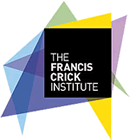About the Project
This 4-year PhD studentship is offered in Prof Karen Vousden’s Group based at the Francis Crick Institute (the Crick).
The tumour suppressor p53 is a transcription factor whose activity is lost or impeded in most human cancers. In around 70% of cancers, p53 is mutated - leading to either a complete loss of the p53 protein or the expression of a mutant form of p53. These mutant p53s generally carry a single amino acid substitution, often within one of 5 hotspots within the DNA binding domain of the protein. The resultant mutant proteins generally lose wild type p53’s ability to induce cell death or senescence, but are not completely inactive. Indeed, a large body of evidence has accumulated to suggest that at least some of these mutant p53s acquire oncogenic functions that drive tumour cell progression and invasion (1). Whether these are neomorphic activities of mutant p53 or a reflection of the retention of some function of the wild type protein remains to be fully established.
Cancer cells that express wild type or no p53 can be engineered to express mutant p53s. We have used these systems to identify functions of wild type and mutant p53 (2), including the observation that wild type p53 can adopt a mutant conformation and activity under some conditions (3). Intriguingly, we have also found that cancer cells expressing mutant p53 depend on continued expression of mutant p53, suggesting an acquired dependency on this protein that is not seen in cancers that develop with wild type or no p53. Since many human cancers express mutant p53s, we would like to understand the basis for this dependency, with the view to targeting this characteristic for cancer therapy. The project will explore the activity of the most commonly occurring p53 mutations in both tissue culture systems and in vivo. We will focus on understanding how mutant p53s help to support cancer cell survival and the ability of cancer cells to migrate and invade, two features that we have identified and have developed cell systems for study. The lab is also interested in cancer cell metabolism, and we will explore how the p53 mutants impact metabolic pathways, focusing on those that we have identified as controlled by wild type p53 (4,5).
This is just one example of the sort of project that might be available in this research group. The precise project will be decided on in consultation with the supervisor.
Talented and motivated students passionate about doing research are invited to apply for this PhD position. The successful applicant will join the Crick PhD Programme in September 2017 and will register for their PhD at one of the Crick partner universities (Imperial College London, King’s College London or UCL).
Applicants should hold or expect to gain a first/upper second-class honours degree or equivalent in a relevant subject and have appropriate research experience as part of, or outside of, a university degree course and/or a Masters degree in a relevant subject.
APPLICATIONS MUST BE MADE ONLINE VIA OUR WEBSITE BY 12NOON GMT NOVEMBER 14TH 2016. APPLICATIONS WILL NOT BE ACCEPTED IN ANY OTHER FORMAT.
https://www.crick.ac.uk/about-us/jobs-and-study/phd-programme/
References
1. Muller, P. A. and K. H. Vousden (2014)
Mutant p53 in cancer: new functions and therapeutic opportunities.
Cancer Cell 25: 304-317.
2. Muller, P. A., P. T. Caswell, B. Doyle, M. P. Iwanicki, E. H. Tan, S. Karim, N. Lukashchuk, D. A. Gillespie, R. L. Ludwig, P. Gosselin, A. Cromer, J. S. Brugge, O. J. Sansom, J. C. Norman and K. H. Vousden (2009)
Mutant p53 drives invasion by promoting integrin recycling.
Cell 139: 1327-1341.
3. Trinidad, A. G., P. A. Muller, J. Cuellar, M. Klejnot, M. Nobis, J. M. Valpuesta and K. H. Vousden (2013)
Interaction of p53 with the CCT complex promotes protein folding and wild-type p53 activity.
Molecular Cell 50: 805-817.
4. Maddocks, O. D., C. R. Berkers, S. M. Mason, L. Zheng, K. Blyth, E. Gottlieb and K. H. Vousden (2013)
Serine starvation induces stress and p53-dependent metabolic remodelling in cancer cells.
Nature 493: 542-546.
5. Kruiswijk, F., C. F. Labuschagne and K. H. Vousden (2015)
p53 in survival, death and metabolic health: a lifeguard with a licence to kill.
Nature Reviews Molecular Cell Biology 16: 393-405.

 Continue with Facebook
Continue with Facebook

